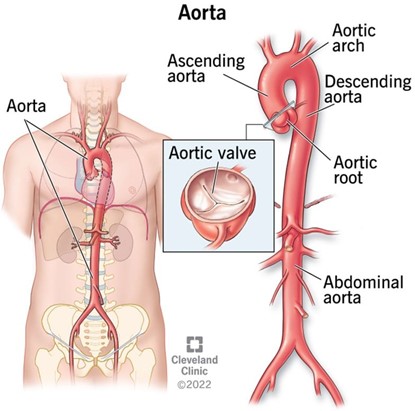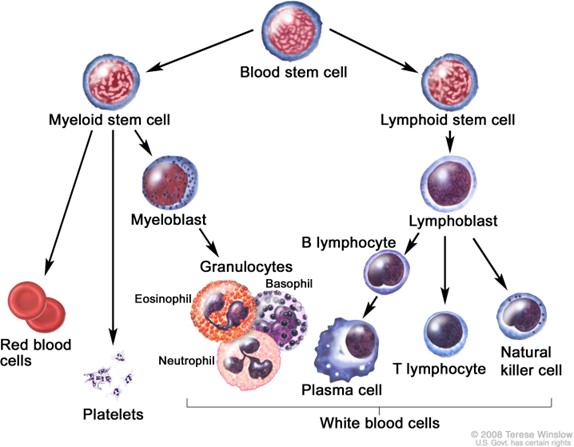The largest artery in the body:
Carotid.
Aorta.
Celiac.
Femoral.
The Correct Answer is B

The aorta is the largest artery in the human body, as well as the main artery in the circulatory system.
It originates from the left ventricle of the heart and extends down to the abdomen, where it splits into two smaller arteries (the common iliac arteries).
The aorta distributes oxygenated blood to all parts of the body through the systemic circulation.
Choice A. Carotid is wrong because the carotid artery is not the largest artery in the body, but one of the main arteries that pumps blood from the heart to the brain and the rest of the head.
It has a diameter of 4.3 mm-7.7 mm and a blood flow of 350-550 milliliters per minute.
Choice C. Celiac is wrong because the celiac artery is not the largest artery in the body, but a major branch of the abdominal aorta that supplies oxygenated blood to the liver, stomach, spleen, pancreas, and duodenum.
Choice D. Femoral is wrong because the femoral artery is not the largest artery in the body, but the largest artery found in the leg region.
It runs down the inner thigh and carries out the important role of supplying blood to the lower body.
It has a diameter of 6.6 mm and a blood flow of 284 milliliters per minute.
Nursing Test Bank
Naxlex Comprehensive Predictor Exams
Related Questions
Correct Answer is B
Explanation

B cells are a type of lymphocyte that originate from the bone marrow and are involved in humoral immunity.
When they encounter a foreign substance (antigen), they differentiate into plasma cells, which secrete antibodies.
Antibodies are proteins that bind to the antigen and neutralize it.
Choice A is wrong because megakaryocytes are large cells that produce platelets, not antibodies.
Choice C is wrong because antibodies are not cells, but products of plasma cells.
Choice D is wrong because T cells are another type of lymphocyte that originate from the thymus and are involved in cell-mediated immunity, not antibody production.
Correct Answer is B
Explanation
A hormone is a secreted molecule that is carried in the bloodstream to where it acts on target cells that bear specific receptors for that hormone.
This definition is consistent with the dictionary and encyclopedia sources.
Choice A is wrong because it contradicts the definition of a hormone.
Hormones are not just any secreted molecules, but ones that have specific effects on cells with matching receptors.
Whether you are a student looking to ace your exams or a practicing nurse seeking to enhance your expertise , our nursing education contents will empower you with the confidence and competence to make a difference in the lives of patients and become a respected leader in the healthcare field.
Visit Naxlex, invest in your future and unlock endless possibilities with our unparalleled nursing education contents today
Report Wrong Answer on the Current Question
Do you disagree with the answer? If yes, what is your expected answer? Explain.
Kindly be descriptive with the issue you are facing.
